March 16 (UPI) — Archaeologists have recovered fragments from a new set of Dead Sea Scrolls, the first found in 60 years.
The remnants of the Book of the Twelve Minor Prophets, including verses from the books of Zechariah and Nahum, were recovered from a cave on the West Bank.
The discovery, made by Israel Antiquities Authority archaeologists, was announced at a press conference on Tuesday.
“The desert team showed exceptional courage, dedication and devotion to purpose, rappelling down to caves located between heaven and earth, digging and sifting through them, enduring thick and suffocating dust, and returning with gifts of immeasurable worth for mankind,” Israel Hasson, director of the Israel Antiquities Authority, said in a press release.
Hasson said it was imperative that Israel’s government fund ongoing archaeological excavations of the region’s caves.
Archaeologists suggest the caves were used to stash valuables more than 2,000 years ago at the end of the Bar Kokhba Revolt, a rebellion of Judean communities against the region’s Roman rulers.
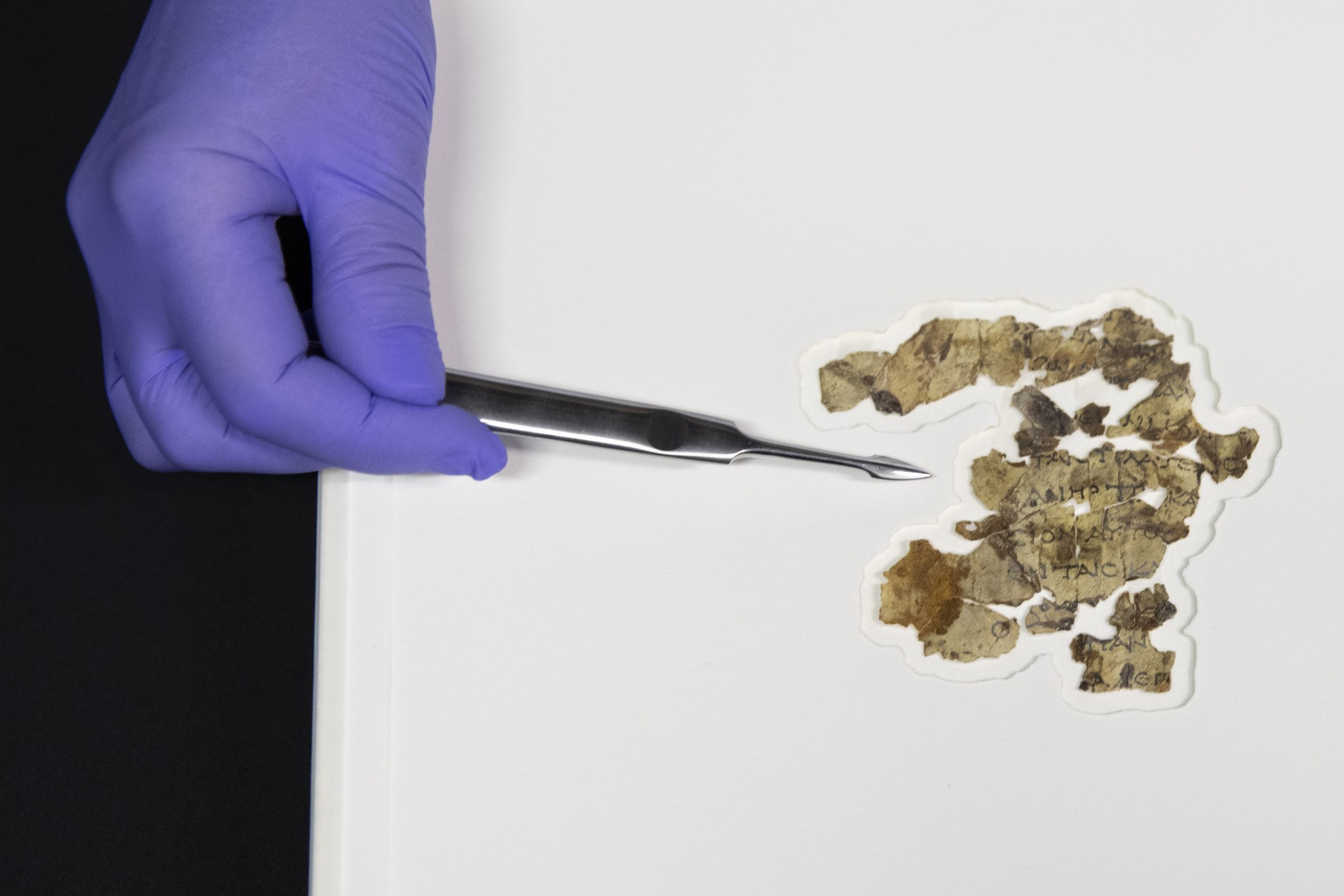
Israel Antiquities Authority conservator Tanya Bitler shows newly discovered Dead Sea Scroll fragments at the Dead Sea scrolls conservation lab in Jerusalem, Tuesday, March 16, 2021. Israeli archaeologists on Tuesday announced the discovery of dozens of new Dead Sea Scroll fragments bearing a biblical text found in a desert cave and believed hidden during a Jewish revolt against Rome nearly 1,900 years ago. (AP Photo/Sebastian Scheiner)
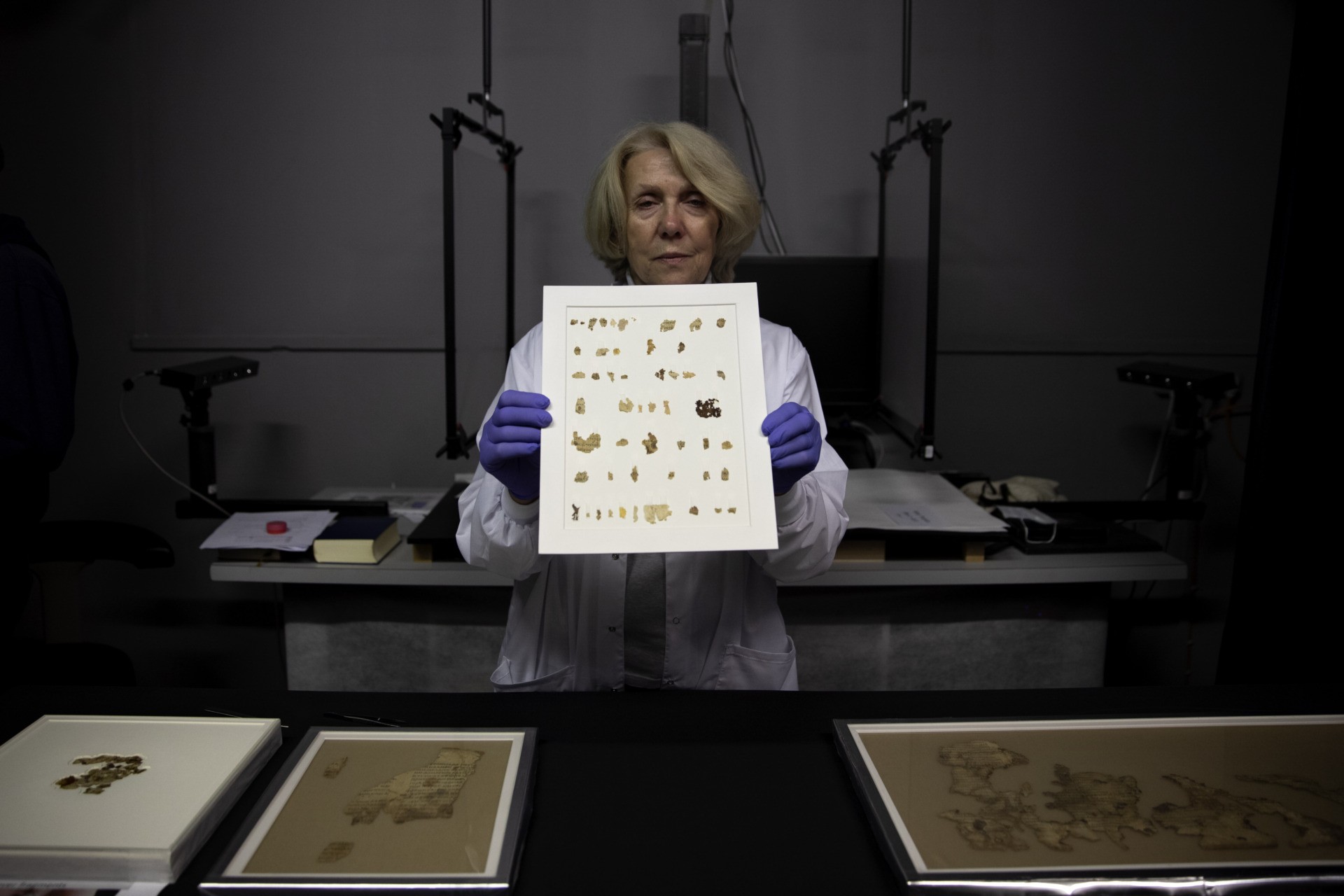
Israel Antiquities Authority conservator Tanya Bitler shows newly discovered Dead Sea Scroll fragments at the Dead Sea scrolls conservation lab in Jerusalem, Tuesday, March 16, 2021. Israeli archaeologists on Tuesday announced the discovery of dozens of new Dead Sea Scroll fragments bearing a biblical text found in a desert cave and believed hidden during a Jewish revolt against Rome nearly 1,900 years ago. (AP Photo/Sebastian Scheiner)
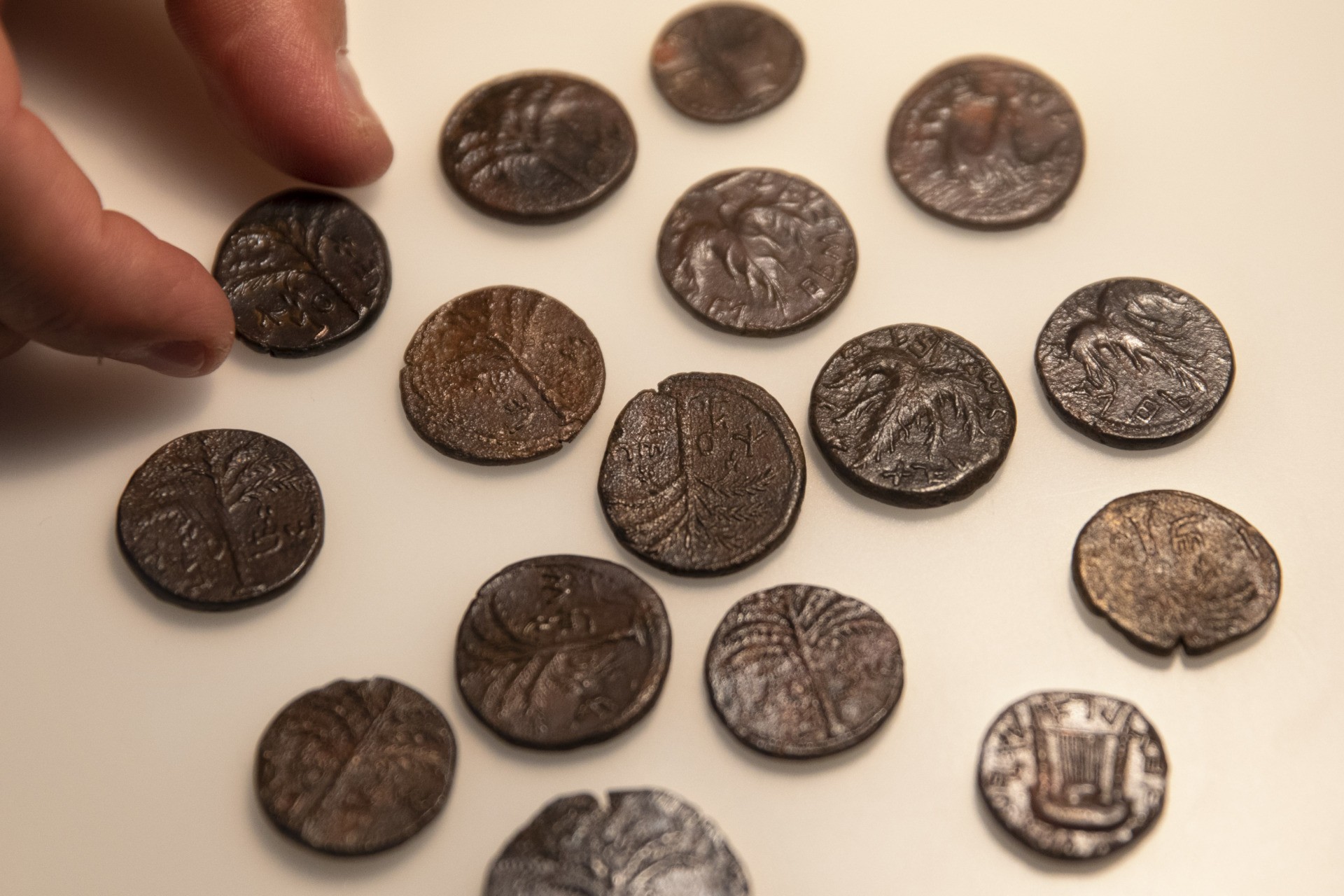
An Israel Antiquities Authority worker shows silver coins struck by rebels in the Jewish uprising against Rome between 132 and 136 AD that were found during its sweep of more than 500 caves in the desert, at a conservation lab in Jerusalem, Tuesday, March 16, 2021. Israeli archaeologists on Tuesday announced the discovery of dozens of new Dead Sea Scroll fragments bearing a biblical text found in a desert cave and believed hidden during a Jewish revolt against Rome nearly 1,900 years ago. Alongside the Roman-era artifacts, items shown to journalists Tuesday included far older discoveries preserved in caves’ arid climate. (AP Photo/Sebastian Scheiner)
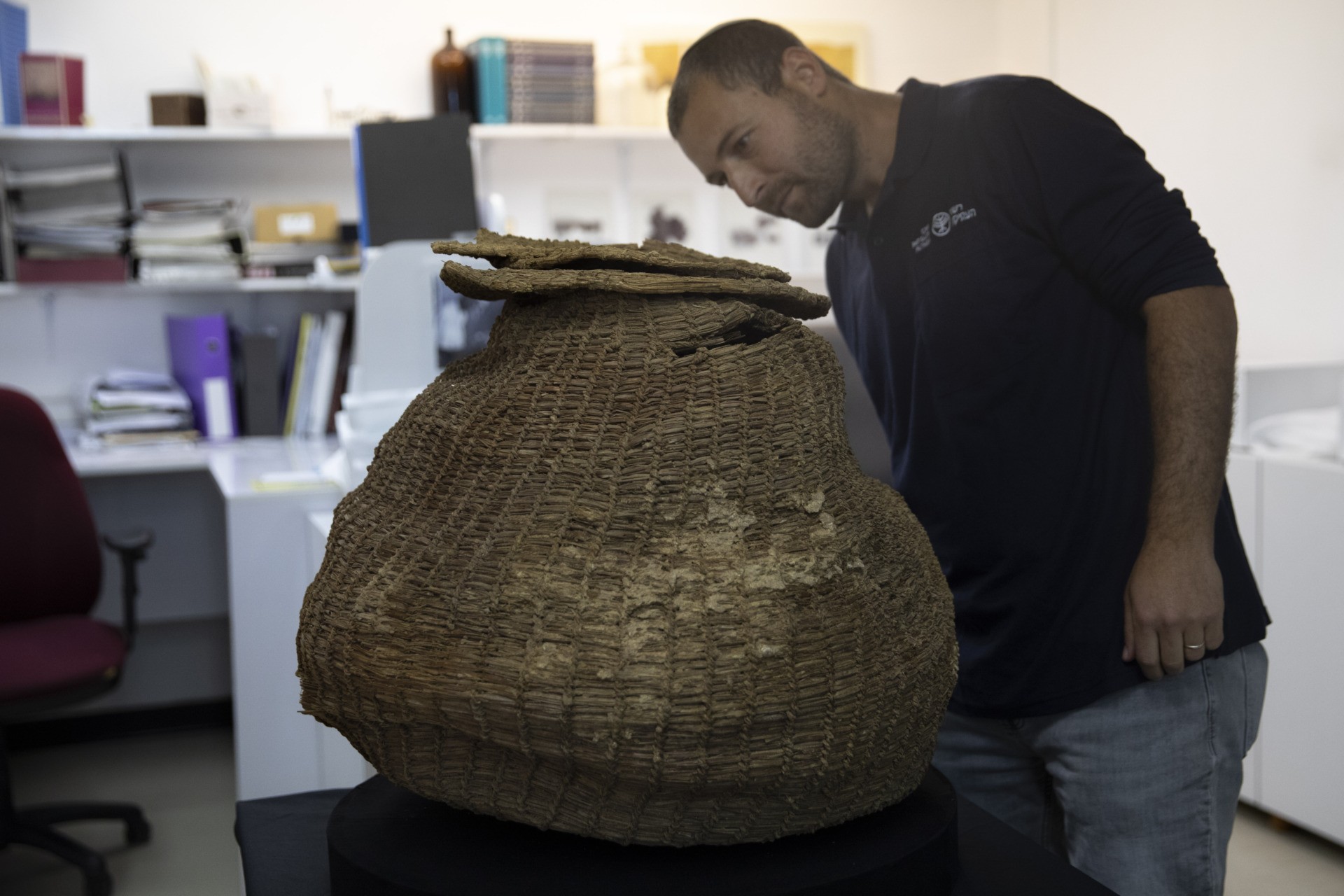
Archeologist Haim Cohen looks at a woven basket that was found during a sweep of more than 500 caves in the desert, at the Israeli Antiquities Authority Dead Sea scrolls conservation lab in Jerusalem, Tuesday, March 16, 2021. Israeli archaeologists on Tuesday announced the discovery of dozens of new Dead Sea Scroll fragments bearing a biblical text found in a desert cave and believed hidden during a Jewish revolt against Rome nearly 1,900 years ago. Alongside the Roman-era artifacts, items shown to journalists Tuesday included far older discoveries including the immense, complete woven basket from the Neolithic period, estimated to be 10,500 years old, preserved in caves’ arid climate. (AP Photo/Sebastian Scheiner)
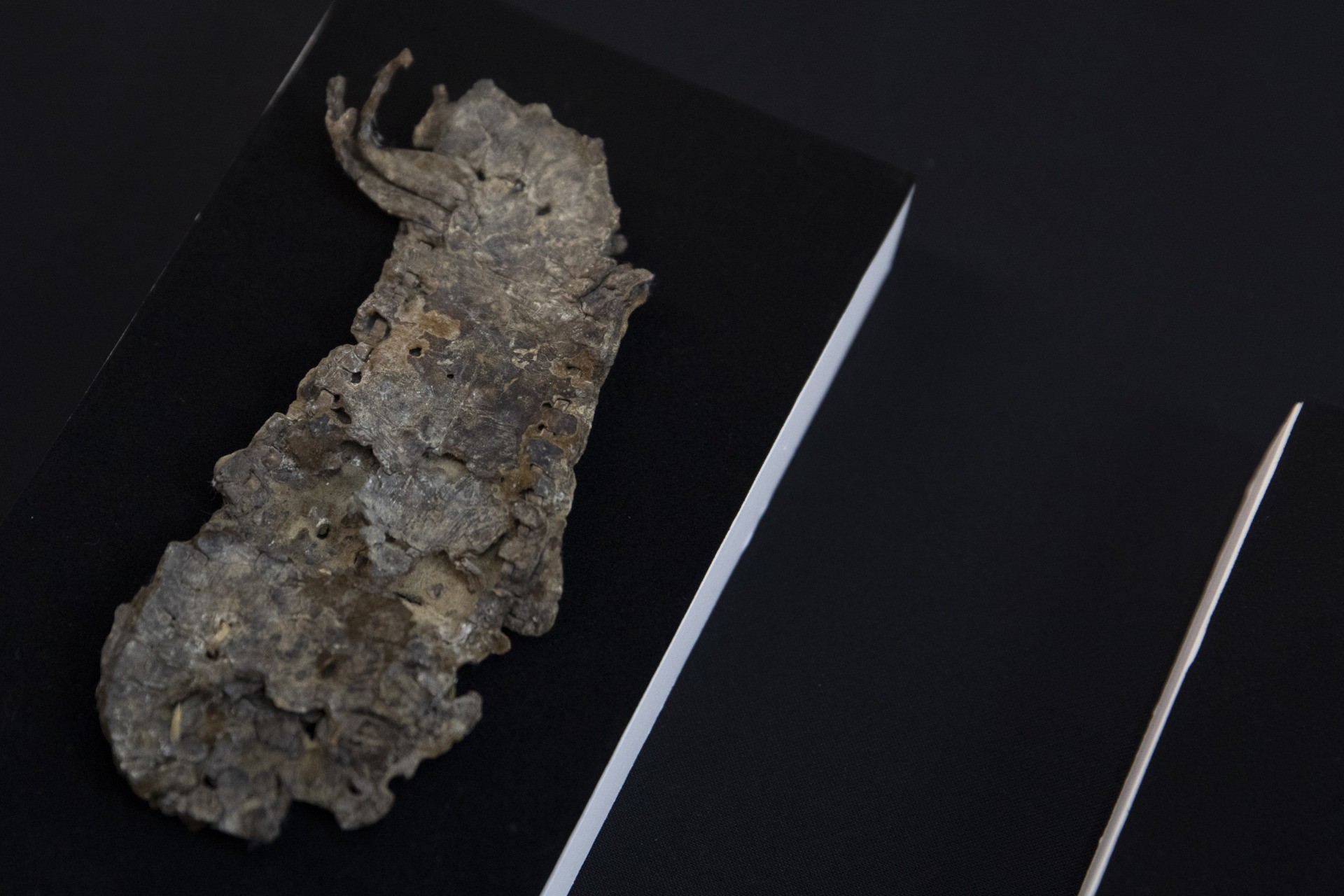
The Israel Antiquities Authority shows a sandal that was found during its sweep of more than 500 caves in the desert, at a conservation lab in Jerusalem, Tuesday, March 16, 2021. Israeli archaeologists on Tuesday announced the discovery of dozens of new Dead Sea Scroll fragments bearing a biblical text found in a desert cave and believed hidden during a Jewish revolt against Rome nearly 1,900 years ago. Alongside the Roman-era artifacts, items shown to journalists Tuesday included far older discoveries preserved in caves’ arid climate. (AP Photo/Sebastian Scheiner)
Ever since the first Dead Sea Scrolls were found some 70 years ago, the region’s caves have been targeted by looters.
“The aim of this national initiative is to rescue these rare and important heritage assets from the robbers’ clutches,” Hasson said. “The newly discovered scroll fragments are a wake-up call to the state.”
“Resources must be allocated for the completion of this historically important operation. We must ensure that we recover all the data that has not yet been discovered in the caves, before the robbers do. Some things are beyond value,” Hasson said.
The newly recovered scroll fragments were found in what’s called the “Cave of Horror,” which was first discovered in 2017.
To reach the cave, archaeologists had to rappel more than 260 feet from the clifftop above. Researchers used drones to investigate inaccessible portions of the cave.
In addition to the historic texts, archaeologists recovered a collection of rare coins, as well as a 6,000-year-old skeleton of a child, most likely female, mummified and wrapped in a cloth.
Researchers also recovered a collection of lice combs and a 10,500-year-old basket, which IAA authorities said could be the oldest in the world.
The Dead Sea Scrolls revealed ancient Biblical verses written in Greek.
One of the verses from the Book of Nahum was translated as follows: “The mountains quake because of Him, And the hills melt. The earth heaves before Him, The world and all that dwell therein. Who can stand before His wrath? Who can resist His fury? His anger pours out like fire, and rocks are shattered because of Him.”
The translation is slightly different from other copies of the same text, offering insights into the ways Biblical verses changed over time.
“Now, in this national operation, which continues the work of previous projects, new finds and evidence have been discovered and unearthed that shed even more light on the different periods and cultures of the region,” said Hananya Hizmi, head staff officer of the Archaeology Department of the Civil Administration in Judea and Samaria.
“The finds attest to a rich, diverse and complex way of life, as well as to the harsh climatic conditions that prevailed in the region hundreds and thousands of years ago,” Hizmi said.
UPI contributed to this article.
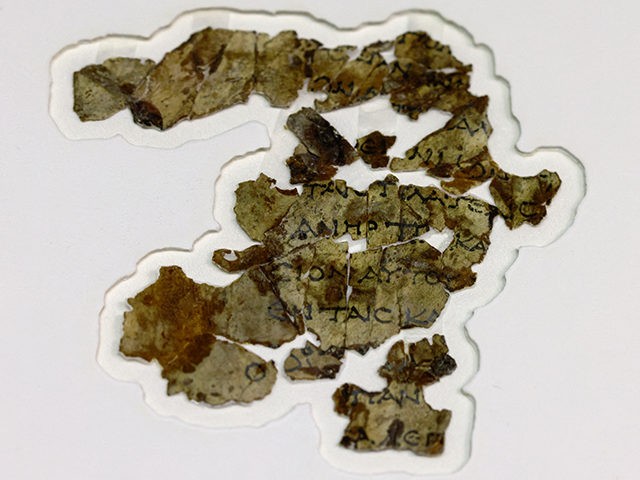
COMMENTS
Please let us know if you're having issues with commenting.